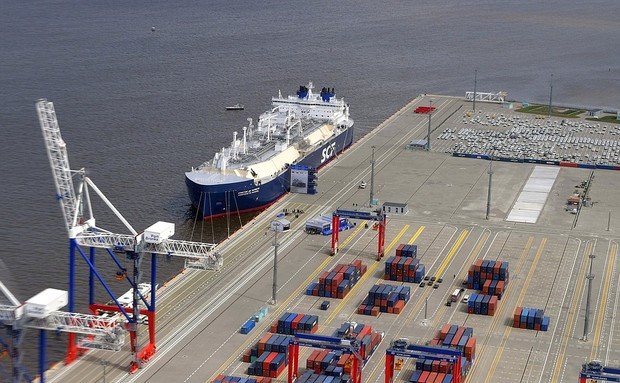Russia to tighten Arctic shipping requirements
The Russian government is working to nationalise oil and gas shipments along the Northern Sea Route. The country has already banned Russian Arctic shipping under a foreign flag since 1 February 2018. Now the Ministry of Industry and Trade elaborated a new bill specifying that ships carrying fossils through the route had to be built in Russia.
The Kremlin is consistent in its policy of backing users and suppliers of domestic products: only ships built in Russia will be allowed to carry oil, natural gas and coal along the Northern Sea Route, according to The Independent Barents Observer. The bill aimed at protecting the national shipbuilding industry has been recently elaborated by the Ministry of Industry and Trade. It follows a law banning the Russian Arctic shipping under a foreign flag. The latter was adopted at the end of 2017 and came into force on 1 February 2018, while the new bill will ultimately come into force in early 2019.
Although the new restriction could potentially be very unfavourable for local companies engaged in Arctic fossil mining and shipping, ministry officials said there would be exceptions allowing usage of foreign-made vessels in some cases. ''The whole existing fleet sailing under the Russian flag, that is all vessels belonging to Russian shipowners […], can be used until the lifetime service period runs out'', the ministry explained. Besides, the law lets the federal government permit shipment by vessels built outside Russia.
Currently, the Russian Arctic shipment is undergoing rapid growth. Last year, almost 10 million tonnes of goods were shipped via the Northern Sea Route, which is by 35% more than in 2016. The Russian Ministry of Natural Resources expects that annual shipping volume could reach 67 million tonnes by 2025, with about a half consisting of liquefied natural gas (LNG). Novatek's Yamal LNG project is meant to deliver around 17 million tonnes of LNG per year. The same amount will be produced by the projected Arctic LNG 2 plant when it starts production (presumably, in 2023).
Meanwhile, Novatek will enjoy exceptions to the new bill. The producer is already allowed to use tankers sailing under foreign flags in the Yamal LNG project, and the lion's share of the vessels serving upcoming projects are likely to be built abroad, as the company is building its fleet of ice-breaking LNG carriers in South Korea. In addition, Novatek is in dialogue with Chinese COSCO shipping company over LNG shipment.
 Novatek is building its fleet of ice-breaking LNG carriers in South Korea. Photo: kremlin.ru
Novatek is building its fleet of ice-breaking LNG carriers in South Korea. Photo: kremlin.ru